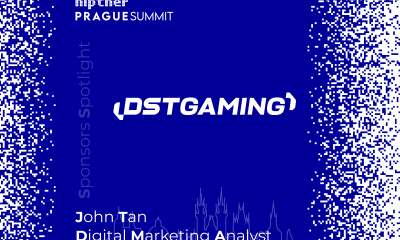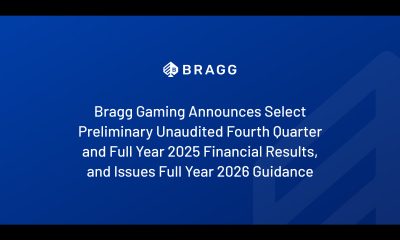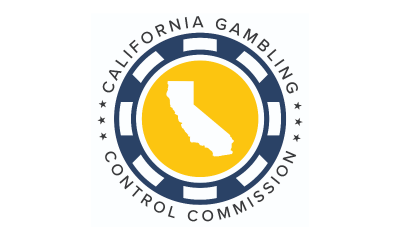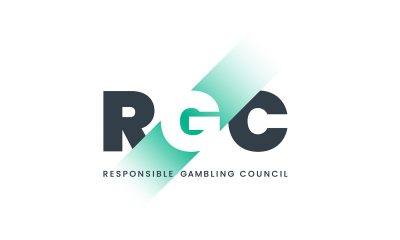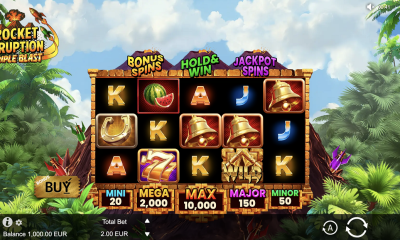Compliance Updates
UKGC Chief Executive, Andrew Rhodes speech to ICE World Regulatory Briefing
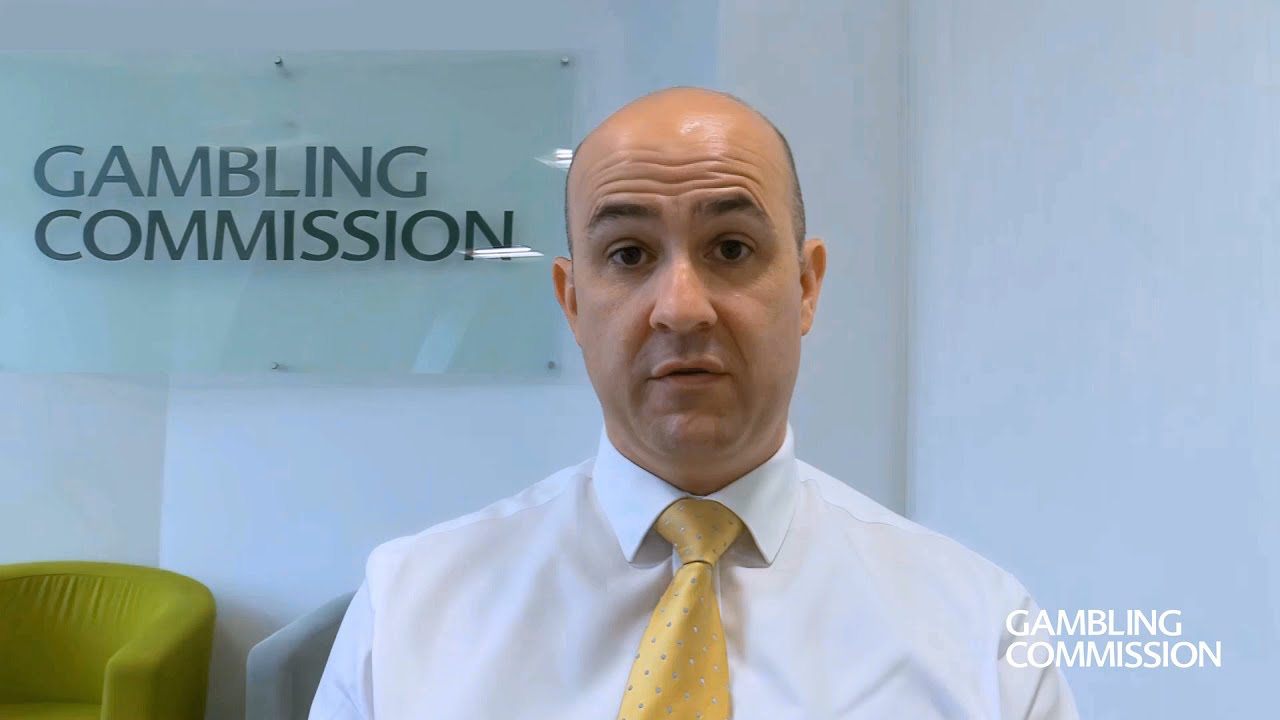
Chief executive Andrew Rhodes’ speech, delivered at the 2022 ICE World Regulatory Briefing.
Thank you, it’s great to be able to gather in person again after a difficult few years. The pandemic is still here but being able to meet in person again like today is really valuable.
Thank you to the staff and the venue for making it safe for us to do so. The world has changed since we last met and so has gambling. There is a danger in a speech such as this, of saying what we are expected to say and to reinforce the messages we often feel we need to reinforce.
There are some universal truths about the industry we regulate, but we also need to be realistic about those truths and not lose sight of what else is happening in this sector.
There is a whole new frontier of novel products out there now, and I want to talk about these unregulated products also.
Like traditional gambling though, these novel products can and do cause harm, so I will update you on where we see our work in tackling gambling harms right now.
Increasingly it’s also true that gambling is a global tech industry, and tackling harm, crime and fairness in global tech requires an innovative response from regulators. So, I will talk through how we are rising to that challenge as well.
But first, let’s take stock of where we are and how the changed world we now live in presents both new opportunities and new threats.
The gambling market in Great Britain had already gone through radical changes before the pandemic struck. But Covid unavoidably accelerated the changes that were taking place.
I mentioned universal truths – gambling is a rental economy – it is based around taking money in exchange for an experience. In Great Britain, the gross yield for the gambling industry equates to taking £450 a second off customers.
The industry is worth some £14bn, roughly the same size as the UK agricultural industry.
Even before the pandemic, online and remote gambling was bigger than traditional bricks and mortar gambling. That’s an important share of a financially significant market.
Nearly half the population gamble in one way or another each month. And that shift to online includes an equally important move to mobile. Gambling can be (and for some people is) with them every waking hour.
These are challenges the Gambling Commission has been tackling for a number of years already:
- we have banned gambling with credit cards
- through our industry challenges we strengthened protections for High Value Customers or ‘VIPs’, made online games safer by design and improved the use of ad-tech to protect children, young and vulnerable people
- we strengthened age and identity verification and we made offering the online self-exclusion tool GAMSTOP mandatory for online operators in Great Britain.
What’s more, we continue to look for new ways to make gambling fairer and safer.
For example, we will shortly be publishing the next steps following last year’s customer interaction consultation. And we continue to make progress on the development of a ‘Single Customer View’, which I will touch on again later. But possibly more concerning is what is happening beyond the regulated spaces that we patrol.
I don’t mean the ‘Black Market’ of unlicensed gambling when I say that either. That is a concern and one that the Commission also tackles day in, day out. And we are deploying more resources to combat illegal online gambling.
But this is not the overwhelming risk it is sometimes painted to be, nor can it be the excuse for not addressing some of the extremes we see in the regulated industry.
When we licence something, we are indicating it comes with some safeguards, standards and consequences. Consumers expect to take some value from that and when someone argues that we should not address the issues we see, they are asking us to sanction something simply because someone else on the black market is worse.
In terms of the unregulated space, however, what I’m talking about are the spate of novel products we now see coming to market, often in the unregulated spaces between established markets.
These products often have many of the hallmarks of gambling, but may not meet the definition. Some deliberately stress they are not regulated as gambling.
Products such as non-fungible tokens (or NFTs), ‘synthetic shares’, crypto currency are becoming increasingly widespread and the boundaries between products which can be defined and regulated as gambling are becoming increasingly blurred.
Language has changed in these products, with talk of ‘investment’ and trading, yet with none of the safeguards or standards those terms should bring with them.
These products have many of the hallmarks of gambling as we know it, but the pattern of harm is different. We are accustomed to thinking about a pattern of deposit and losses. Chasing losses, escalating deposits, and deepening financial problems in the worst cases. Remember – this is an industry yielding £450 a second – the money is only moving one way.
With these evolving products, the pattern is different – it sees more and more deposits – sometimes wildly unaffordable levels, with theoretical increases in value and ever-increasing exposure to loss. When the harm occurs it can be instant and catastrophic, with little or no recourse.
We are likely to see more and more integration of these types of products into sport and other areas of lifestyle, as well as the legitimate gambling industry. These are lucrative growth areas, and we ignore them at our peril.
We are in the process of changing how we regulate and deal with novel products. Many of these products are not gambling as defined by law, and I am not suggesting we should be regulating them, but I am suggesting we will see this pattern continue and we are likely to see more and more tests of what is and is not gambling, in a way we have not faced before.
It’s important to make clear that gambling harms can impact anyone and do. Our recent figures suggest we are making progress in reducing the number of problem gamblers in Great Britain. More on those later, but even so our latest data still represents hundreds of thousands of people suffering from severe gambling related harms.
It’s also a churning, changing group of people too. There is nothing static about it. As some people recover, others sadly spiral.
And you don’t need to gamble to suffer the harms. Family members, friends, communities; all can be blighted by problem gambling.
Gambling remains a leisure product in British law. But the truth is in many ways – and almost every way that counts for its regulation – gambling is now another global tech industry, like communications or finance.
Its thirst for innovation is unending, and operator’s drive to compete in what is a very dynamic market leads to new opportunities being sought all the time.
For those members of the public who enjoy gambling as a pastime this presents opportunities for them. But we are also determined to make sure that the new risks that come with this innovation don’t lead to further harms.
Here in Great Britain, the Government is approaching the publication of its Gambling Act Review White Paper. We welcome this and we will continue our close working relationship with our sponsoring department, DCMS, as the Review proceeds.
But we aren’t waiting for its outcome to make progress.
Last week we published our Business Plan for the year ahead. We are determined to continue to raise our game to meet the challenges of regulating a global tech industry.
We will increase the effective use of data by the Commission and the gambling industry to provide the information and insight necessary to meet these regulatory goals.
We continue to work with industry and the Information Commissioner’s Office to develop a ‘Single Customer View’. The goal to make use of operator data to better protect consumers from harm, whilst protecting their personal data. The principles behind this are very simple. We know the average consumer who gambles has multiple accounts. For those at risk of harm, they will often have many accounts with many operators.
Today, it is possible for someone who is experiencing gambling harm and gambling out of control with one operator, to simply move on to another operator as soon as there is an intervention that stops or inhibits their gambling.
This can continue an almost infinite number of times, despite potentially every operator doing the ‘right thing’.
What we are hoping will be possible through the Single Customer View is a position where those who are being flagged as being in distress can be intercepted at a much earlier stage as operators are able to safely alert each other.
Of course, this will be complicated and there are many things to navigate, but we have the opportunity to stop the spiral of damaging levels of gambling much, much sooner than before.
And we are also improving how we measure participation in gambling and the prevalence of gambling harms, trialling a new methodology as we speak. We will be publishing the results of that trial in the coming months and if successful will look to build the new methodology into a new gold standard set of official statistics going forwards from next year.
All this work, this innovation, of course costs. In people, in time and in money. But we know the investment we make now will make gambling fairer and safer in the future. That’s not a bet, that’s a fact.
We also know that collaboration leads to better outcomes. The Commission has long looked to work with partners in the pursuit of fairer, safer gambling in Great Britain. The National Strategy to Reduce Gambling Harms was designed and delivered through collaboration.
Through collaboration with industry, we delivered improvements through ad-tech, game design and the treatment of High Value Customers, before underpinning it all in regulation. And it is only through collaboration with other regulators such as our work with the ICO, ASA and CMA in Britain that we can fully protect consumers.
But we see a focus on collaboration amongst gambling regulators across the globe, as the essential next step in tackling the challenges we all face.
The gambling industry has been consolidating for some time. In Great Britain, we are seeing an increasing number of mergers and acquisitions and ever more complex ownership structures. We are not only regulating global tech companies, but often multinationals with huge resources and complex interests and drivers.
Across markets, across jurisdictions, across cultures, collaboration will need to be a key tool in our work to make gambling fairer and safer for consumers worldwide.
And we as regulators now need to grasp those opportunities to work together in a more joined up way. Let’s do more to share practices, share understandings and share outcomes of our work.
Many of the operators we deal with in Great Britain will be the same as those dealt with in other jurisdictions. Things that are not being done well here, are likely to be issues in other countries too, when you consider these are multinationals. I hope that we can get to a point of joint investigations and joint action and move beyond some of the good things we already to.
We often talk a lot about what is wrong in the industry we regulate and the challenges we face. We are still too far away from where we need to be, but when I said earlier there are some universal truths, one of those for us is that we have seen a lot of improvements.
Our compliance investigations are starting to find more evidence of good practice and clever interventions to make gambling safer.
Gambling is a very politically, commercially and socially contested space though.
I am struck by how much misinformation there can be, how statistics are sometimes misused or misinterpreted in order to support an argument. Allegations are far more commonplace, and the seeds of mistrust are sown so easily on all sides.
Of course, none of this is new in life, but as this industry continues to evolve rapidly and we see the continuing pattern of the gamblification of entertainment, having trusted, impartial and reliable voices will become ever more important, but harder to achieve.
Gambling is a fast moving, dynamic industry. It is more and more a global tech industry. And it has many hangers-on, trying to make a quick buck in the unregulated spaces nearby.
The potential for innovation has never been so great. But neither has the potential for risk or harm.
But we can make gambling fairer, safer and crime free.
The progress we’ve made during a global pandemic is proof of that.
So let’s push each other forward. Let’s share more of what works with each other and let’s help each other guard against new risks.
The Gambling Commission will keep striving for fairer and safer gambling. We look forward to working with you all to achieve just that.
Powered by WPeMatico
Compliance Updates
Xpoint gains Massachusetts vendor license as North American expansion accelerates
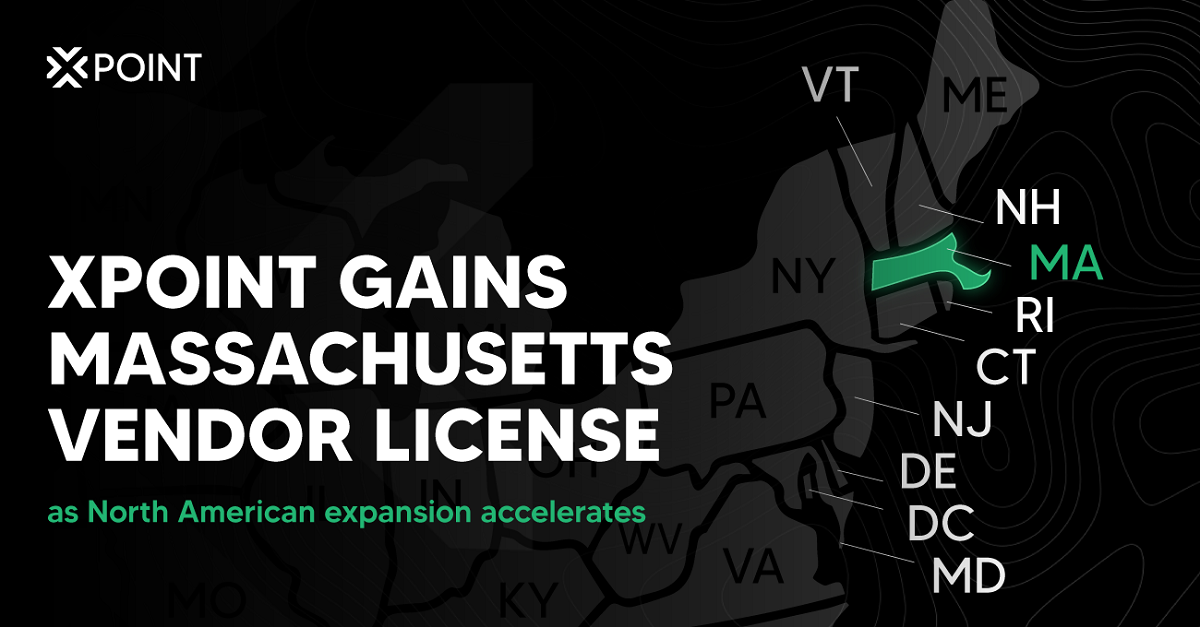
Xpoint, a leading geolocation and compliance technology company, has officially been granted a vendor license to enter the regulated sports betting market in Massachusetts.
The move marks the latest strategic milestone in the company’s rapid North American expansion, reinforcing its position as a primary provider of essential gaming infrastructure.
Xpoint’s market-leading geolocation solution is now available to operators in the Bay State, providing the high-precision tools required to ensure all player activity is fully compliant with the stringent legal requirements set out by the Massachusetts Gaming Commission.
With the addition of Massachusetts, Xpoint is now authorized to support regulated online sports wagering in 28 states and territories, as well as Ontario in Canada. The latest license follows a period of intense global momentum for the company, which recently saw successful market entries in Missouri, Brazil, and the UAE.
Xpoint’s advanced, adaptable platform is built uniquely for the gaming industry and uses the latest geofencing technology to offer precision location accuracy. By utilizing sophisticated data points, the system effectively prevents fraudulent players from making wagers outside of legal jurisdictions and highlights suspicious activity in real-time.
The platform has been supported by a recent investment round, dedicated to accelerating growth and enabling further differentiation from competitors through continuous product enhancement.
Manu Gambhir, CEO of Xpoint, said: “Securing our license in Massachusetts is a vital step as we continue to make strides in the geolocation space. Massachusetts has a passionate sports culture and a sophisticated regulatory framework, and we are excited to provide the precision technology necessary to maintain the integrity of the state’s sports betting ecosystem.
“Our growth into the Bay State demonstrates our team’s ability to navigate complex regulatory landscapes quickly and efficiently. This expansion underscores the global demand for more innovative and adaptable compliance solutions, and we remain committed to being the most reliable partner for regulated operators worldwide.”
The post Xpoint gains Massachusetts vendor license as North American expansion accelerates appeared first on Americas iGaming & Sports Betting News.
ANJ
What’s up and what’s next on the French gambling market ?

When the 2024 annual report on the French gambling market was published, Isabelle Flaque-Pierrotin, Chair of the French National Gaming Authority (ANJ), stated: “The French market is growing at a pace comparable to that of the major European markets. While operators were particularly active in 2024 due to major sporting events, the first few months of 2025 confirm this growth momentum”.
In fact, in S1 2025, Gross Gaming Revenue (GGR) for the French market stood at €5.7 billion, up 3.5% compared to S1 2024, with the online market growing by 6% compared to S1 2024 (€1.4 billion GGR in S1 2025), driven by sports betting.
The 2025 report, which is yet to be published, will show the impact of the French tax increases that came into force on 1 July 2025, including the 15% tax on operators’ advertising expenditure. It is already apparent that FDJ United’s GGR, which was up 19% in S1 2025 compared to S1 2024, is now only up 1.6% (€4.4 billion) for the whole of 2025, and that its revenue is down 1.7% to €1.9 billion.
The Social Security Financing Act for 2026, enacted in December 2025, does not include any new provisions relating to gambling taxation in France, which the ANJ notes is “heavier than the European average, highly fragmented and difficult to understand”. The regulator adds that, from this point of view, a rationalisation of gambling taxation could be beneficial.
Since Betclic (Banijay Gaming) acquired a majority stake in Tipico at the end of 2025, following the takeover of Kindred by FDJ United in 2024, France, Europe’s fourth-largest gambling market, now has two of the industry’s five European champions. The ANJ considers that the structure of the French market is a matter for the competition authority and is not included in its legislative objective of ensuring the balanced operation of the various types of gambling.
The 2026 Finance Act was enacted just a few days ago in France and has perpetuated gaming clubs in Paris, thus responding to a long-standing demand from land-based casinos. However, unlike last year’s budget debates, this year’s debates did not address the issue of online casinos. There is nothing official on this subject, apart from the fact that it is on everyone’s lips.
According to Pauline Hot, Director General of the ANJ since July 2025: “If one day [online casinos] were to be authorised, it would have to be within a very strict regulatory framework, probably stricter than for other games, because the design of these games is particularly addictive”. For the record, in 2024, the ANJ launched a study on the influence of design of the offers proposed by operators on player behaviour and their gambling consumption.
According to Mr Laurent Lassiaz, CEO of the JOA Group and Vice-Chair of the European Casino Association: “France is one of the few countries in Europe where online casino is not regulated and where tools to combat illegal gambling remain too limited versus the size of the phenomenon. […] given the unique nature of the French market (with its large network of land-based casinos and their string local involvement) we are in favour of a controlled and tightly regulated opening”.
For Nicolas Béraud, President of Banijay Gaming and Chair of the French Online Gaming Association (AFJEL): “There is currently unfair competition for regulated operators, as these illegal players are not subject to any constraints. It also represents a loss of revenue for the State: we are talking about €1 to €2 billion in potential revenue”.
Finally, Ms Flaque-Pierrotin, ANJ Chair, estimates that “the illegal market represents between €800 million and €1.5 billion in GGR: it is therefore not a marginal phenomenon. A PwC study, which we commissioned and which has been updated by the AFJEL, shows that it continues to grow, mainly driven by illegal online casinos”.
The fight against illegal offer brings together the regulator and licensed operators because it is the counterpart to the weight of regulation on legal offer. Since 2023, the ANJ can directly issue administrative blocking orders to infringing sites and mirror sites without having to wait for a court decision. The French regulator is currently exploring the possibility of directly blocking financial flows and wishes to amend the law to enable real-time cooperation with European gambling regulators. In October 2025, managers of the online casino Crésus – which are charged of having went on providing illegal offer in France after a supposed shut down of Crésus activities in September 2024 – were placed in pre-trial detention by a French jurisdiction specialised in organised crime as the result of law enforcement cooperation with Cyprus.
When recently questioned about Anjouan issuing a B2B licence to Relax Gaming, a subsidiary of FDJ United, the ANJ also stated that it regretted “the absence of any legal basis for such a B2B licensing system in French law, and consequently of an adequate regulatory framework, preventing it from controlling these software supply activities”.
The ANJ says it remains vigilant about prediction markets after considering in November 2024 that Polymarket was likely to offer unauthorised gambling services. Germany, Belgium, Romania, Switzerland, the Netherlands, Poland, Greece, Cyprus, Ukraine and Portugal have also blocked access to Polymarket. Nevertheless, the French regulator also states that it is “also looking at what is being done elsewhere, with a view to future innovation”.
In terms of innovation, the start of this year marks the launch of an ANJ-supervised experiment with play-to-earn games (JONUM, i.e. digital games with monetizable prizes), which have been authorised since a 2024 law but for which the secondary legislation was not issued until last February. It should be noted that a trial of the football-themed website Sorare.com – considered in France to be a JONUM -, charged with providing unlicensed gambling facilities to consumers in Britain, has been set for 15 June 2026 at Birmingham Magistrates’ Court.
The key objective of the ANJ’s 2024-2026 strategic plan, which could be evaluated later this year, is to reduce the share of excessive players in operator revenues. Excessive gambling affects 360,000 people in France, which is more than the population of the city of Nice. Requests for voluntary gambling bans – a service revamped in 2025 to simplify, secure and speed up registration – rose from 40,000 to 85,000 between 2021 and 2025. People aged 18-34 account for 56% of those registered.
The ANJ considers that operators’ promotional strategies are one of the main tools at its disposal for striking a balance between the legitimate use of advertising by operators to promote legal gambling and the prevention of excessive gambling. ANJ’s review of operators’ strategies for 2026 showed a 25% increase in promotional budgets – marketing investments and financial rewards – compared to expenditure in 2025, i.e. €785 million, in anticipation of a year marked by the Winter Olympics and the Football World Cup.
To limit advertising pressure, the ANJ proposes the introduction of a whistle-to-whistle ban on television (prohibiting sports betting advertising 5 minutes before the match, during the match and 5 minutes after), stricter sponsorship regulations and the introduction of loss limits for 18-25 year olds.
These proposals are also linked to the regulator’s desire to distance sport from sports betting and to change the culture of gambling in order to prevent its trivialisation in French society, particularly among minors. According to the French regulator, gambling cannot be trivialised because it is not an ordinary consumer product nor just another leisure activity.
A survey conducted at the end of summer 2025 among 5,000 young people aged 15 to 17 shows that more than 4 in 10 young people are gamblers (42.6%) – an increase of 7.8 points compared to the 2021 study -, 54,3% of whom play lottery games, especially scratch games, and 11,4% play sports betting.
The ANJ therefore recommends strengthening controls on the prohibition of sales to minors in physical points of sale and testing tools inspired by foreign models: player cards, QR codes, digital identification. In order to delay minors’ exposure to gambling as long as possible, the ANJ is also campaigning for the abolition of temporary online player accounts, as these allow betting even if proof of age has not yet been verified, while associating families in the prevention process.
Finally, 2026 will see Ms Flaque-Pierrotin’s leave ANJ’s chairpersonship and the nomination of her successor, whose vision will preside over French gambling regulation for the next six years.
Author: Claire Pinson-Bessonnet, Founding Partner at CPB Avocats.
The post What’s up and what’s next on the French gambling market ? appeared first on Eastern European Gaming | Global iGaming & Tech Intelligence Hub.
Canada
PointsBet Canada to Contest Proposed 5-Day Suspension by AGCO
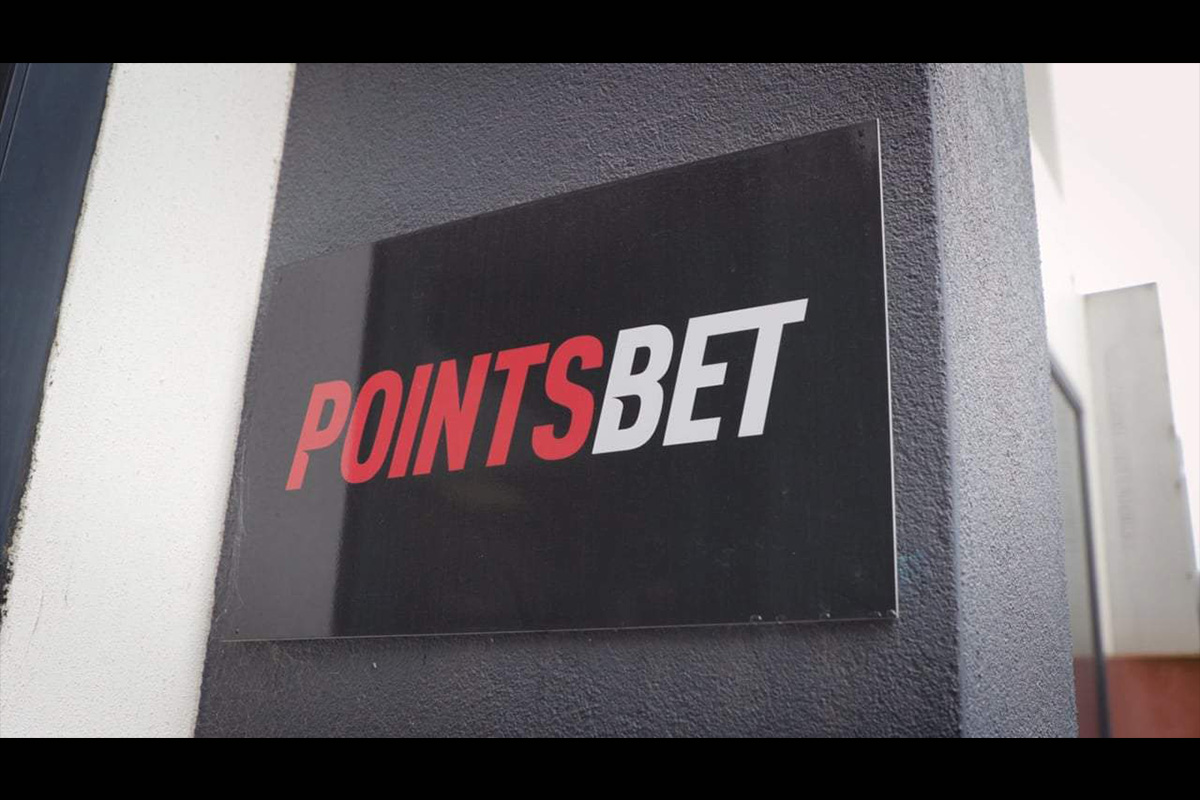
PointsBet Canada confirmed it will request a hearing before the independent Licence Appeal Tribunal to contest the Notice of Proposed Order issued by the Alcohol and Gaming Commission of Ontario (AGCO) on February 12, 2026, proposing a five-day suspension of its operator registration.
PointsBet claims that the proposed sanction overemphasized an isolated incident that was a result of human error, not a systemic issue. The company also said that it did not intentionally withhold information from gaming regulators, and it immediately sent the necessary information once it was discovered.
The operator, which launched in Ontario in April 2022, also said that it cooperated fully with the AGCO’s investigation.
“We have a strong compliance record in Ontario and remain fully committed to the highest standards of integrity and player protection. We look forward to presenting our case at the Tribunal,” said Scott Vanderwel, PointsBet Canada Chief Executive Officer.
The post PointsBet Canada to Contest Proposed 5-Day Suspension by AGCO appeared first on Americas iGaming & Sports Betting News.
-

 Central Europe6 days ago
Central Europe6 days agoPowering the Next Generation of Online Casinos: Inside DSTGAMING’s Scalable iGaming Ecosystem
-

 Adjusted EBITDA5 days ago
Adjusted EBITDA5 days agoBragg Gaming Announces Select Preliminary Unaudited Fourth Quarter and Full Year 2025 Financial Results, and Issues Full Year 2026 Guidance
-

 Bagley-Keene Act5 days ago
Bagley-Keene Act5 days agoCalifornia Gambling Control Commission Issues Critical Guidance on Stakeholder Communications and Ex Parte Rules
-

 Alberta iGaming Corporation6 days ago
Alberta iGaming Corporation6 days agoAlberta iGaming Corporation Partners with Responsible Gambling Council
-

 Habanero6 days ago
Habanero6 days agoRacing Royalty — Habanero’s High-Speed Hold-and-Ride Thrill
-

 BGaming6 days ago
BGaming6 days agoBrace for Impact — BGaming’s Rocket Eruption: Triple Blast
-

 iGaming4 days ago
iGaming4 days agoPRAGMATIC PLAY UNEARTHS PROGRESSIVE MULTIPLIERS IN ROLLING IN TREASURES
-

 2026 betting analysis7 days ago
2026 betting analysis7 days agoArizona Department of Gaming Releases December Sports Betting Figures




